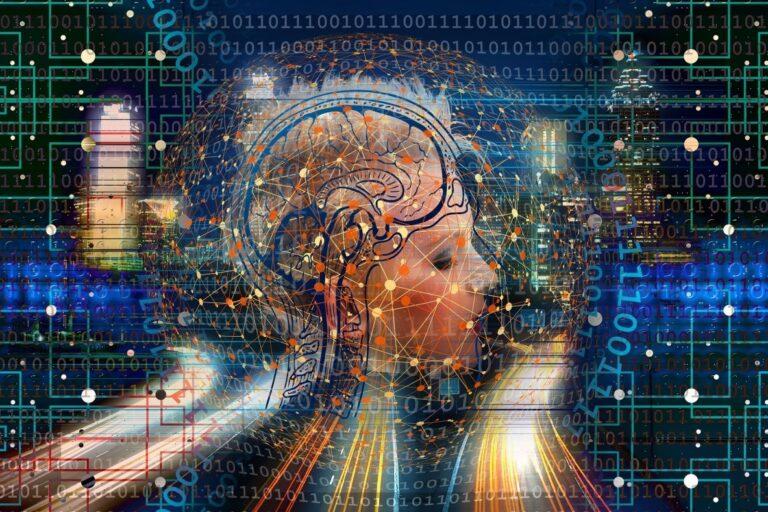With the change in technologies and the growing digital world, there have been significant changes in blockchain practices. Before knowing the evolution of blockchain practices, let us first know what blockchain technology is in simple language to start with clarity in basics.
Blockchain technology is nothing but a system of recording transactions in blocks within the network of computers where the whole system is decentralized and transparent for users.
With the improving digitalization and better opportunities with changing technologies, there are various changing trends occurring in the blockchain industry that have made several remarkable changes in other industries, processes, and developments.
The Present Situation of Blockchain Technology in the Digital Transformation
The open-source ledger technology known as blockchain has revolutionized several industries by enabling secure, open and unalterable connections. It is highly beneficial in every area of the economy.
Nevertheless, blockchain-based applications have so far mostly been excluded from greater programs of digital reforms. The impacts of employing the updated current technology have led to significant improvements and changes in blockchain technology.
These adjustments have resulted in major improvements to the outcomes of all business processes and have assisted firms in drastically changing their task-handling methods.
Blockchain Practices: Transformational Trends for 2024
1. Improved Connectivity and Scalability
One of the main problems in blockchain was connectivity, which will be improved next year. It is believed that technologies will emerge providing safer and more efficient connectivity between the blockchains.
Also, another problem was regarding the possibility of a large amount of transactions with the help of blockchains. With improved processes and solutions of layer two, there are chances of an increase in the number of transactions.
Read: The Complete IDO Guide for Crypto Startups: Launching an IDO
2. Integration of Blockchain with AI and IoT
According to forecasts, there will be a greater degree of connection between AI, IoT, and blockchain by 2024. The analysis of blockchain data and the extraction of valuable information can be enabled by the use of AI technologies and algorithms.
Additionally, blockchains enable the safe and secure sharing of data across IoT devices, making it easier to frame a network.
3. Growth of Decentralised Finance and Web3
With the combination of blockchain technologies and the decentralization of processes, the concept of decentralization in finance is emerging. People and financial services offering organizations would be more interested in using the benefits of this decentralized system of finance.
All borrowing and lending practices can be done easily without any control and restrictions. Also, the use of web3, which is again an uncentralized network, will help internet users perform tasks and use the assets that are digitally operated.
4. Sustainable and Green Blockchain Solutions
The other problem is regarding the bad impact on the environment due to the usage of blockchain services. But in upcoming years, the usage of sustainable solutions for blockchain will help to reduce the negative impact on the environment which is very crucial to use these days.
With eco-friendly practices, the amount of carbon usage decreases and hence helps to promote sustainable blockchain practices. The usage of such eco-friendly blockchain solutions will be increasing day by day due to an increase in concern for environmental protection.
5. Integration in Healthcare and Supply Chain Management
Blockchain will play an increasingly important role in both supply chain operations and the delivery of healthcare. Blockchain will guarantee authenticity, traceability, and transparency in supply chains, avoiding fake goods and improving logistics.
Blockchain will make it possible for stakeholders in the healthcare industry to securely share patient data, protecting the confidentiality and integrity of the information while promoting easy interchange of medical records.
6. Education and Skill Development
With the increase in the trends and usage of blockchain practices with digitalization, there will be a significant increase in the demand for blockchain education and skill development for efficiently utilizing the advantages of blockchain solutions.
The courses, institutions, and learners would increase day by day based on the growing demand and helpful developments in the blockchain field.
Challenges and Opportunities Ahead
The development of blockchain technology within the context of digital transformation has great promise for societal and industry-wide positive effects. Banking, finance, and supply chains will transform due to increased security, transparency, and efficiency.
These developments will also encourage ethical practices and build fraud resistance. The decentralization of financial services by DeFi will enable access to banking and investing alternatives that were not previously accessible on a global scale.
Furthermore, shifting to Web3 will transform data ownership, resulting in a decentralized internet environment where consumers have greater influence over their online identity.
Opportunities and Challenges Ahead
Even though there are a number of benefits, challenges still persist ahead in blockchain technology. There is a need for skillful and talented people to handle such transactions, also there are security concerns and the need for improved regulation of blockchain practices.
But along with the challenges, there also exists the opportunities to further improvise blockchain technology, with joint cooperation of all the stakeholders such as government, corporations, educationists, etc
Conclusion
As digital transformation keeps restructuring sectors, blockchain technologies are also developing due to certain changes such as standardization and sustainable development, integration with other industries, scalability, and upcoming regulations/laws pertaining to the blockchain industry.
In a world that is getting more and more digitalized, businesses are looking forward to transforming their operations with effective enterprise application integration. So, the way of handling operations and processes will change in a faster manner due to better facilities available resulting in better outcomes. Companies that aim to succeed amid the ever-changing economy of 2024 and beyond must be ready to adjust to these developments and include blockchain in their strategies for digital transformation.



